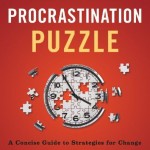Impatience with instructions is just procrastination in another form
In this case, the procrastination isn’t delay, it’s not wanting to put up with annoying instructions, details, and steps.
If,
Procrastination is harmful deferment of an aversive task
(translation: putting off something we don’t want to do and getting burned by it later)
then, if you’re skipping instructions in order to finish more quickly and it leads to a lower grade, you’re procrastinating. Continue reading














